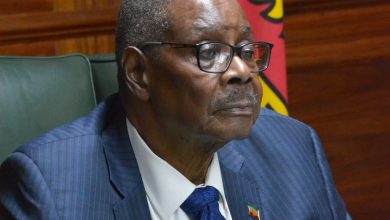Govt shuts down Salima Sugar
Government has halted operations at the troubled Salima Sugar Company Limited (SSCL) in a move that has drawn scrutiny from governance analysts.
In a telephone interview yesterday, SSCL executive director Wester Kosamu confirmed the suspension of the company’s operations.

“We have done a lot to resume production and what this means is that there will be no sugar production now,” he said, adding that it was not clear which government office issued the order.
Kosamu said maintenance works were underway at the factory in the hope of resuming production.
SSCL’s closure comes about a week after National Economic Empowerment Fund (Neef) chief executive officer Humphrey Mdyetseni confirmed that government issued a directive that its offices should be closed indefinitely.
When contacted yesterday, newly appointed Chief Secretary Justin Saidi declined to comment, saying he was new in the office.
“I have just been appointed and yet to take oath of office and, therefore, I cannot start taking questions from the media before that,” he said.
Saidi was appointed on Sunday evening by President Peter Mutharika.
National Police spokesperson Peter Kalaya, while not directly commenting on the halt of operations, confirmed that security had been deployed to SSCL.
“I can confirm that we have deployed police officers not only at Salima Sugar Company, but also at MRA [Malawi Revenue Authority], Neef and even offices at Capital Hill. This we have done just to beef up security,” he said.
Meanwhile, Centre for Social Accountability and Transparency executive director Willy Kambwandira said yesterday that while the suspension was not surprising given the ‘serious damage’ from governance scandals and financial mismanagement at SSCL, the government’s approach lacked transparency.
He said: “However, for transparency, government needs to publicly clarify which office has given the order, on what regulatory basis and how long the suspension lasts.
“The lack of clarity on who has issued the order fuels speculation. Is this a regulatory compliance issue, a political decision or a governance conflict?”
He also warned of immediate economic consequences, saying that sugar cane is highly perishable.
In a separate interview, corporate governance expert Anthony Mukumbwa argued that the government’s move was “too drastic” and suggested that appointing new, professional boards for the State-owned companies would have been a more prudent first step.
But he dismissed concerns that the action would hurt investor confidence, arguing that investors are wary of corruption, not actions taken to curb it.
Said Mukumbwa: “The DPP government, the DPP as a party, has got a lot of professionals out there that are sympathising with them. Let them appoint those professionals to run those boards.
“And secondly, leave the mandate of investigation but also restructuring the place to the board. Government should not interfere.”
Another governance analyst, Charles Kajoloweka, who is also executive director of Youth and Society, expressed concern over the ambiguity surrounding the decision-making process.
“We don’t know who is making these decisions. And that really creates room for suspicion that there might be powers within the government that are making decisions that may not even be within their mandate,” he said.
The suspension of SSCL comes after the company has been embroiled in court battles. An audit confirmed by the Attorney General revealed that millions of dollars were mismanaged, with minimal prosecutions or recoveries made to date.
SSCL was incorporated on October 22 2015 initially as a public-private partnership investment with an Indian investor. However, the arrangement was later revised to make the Malawi Government the sole shareholder.





